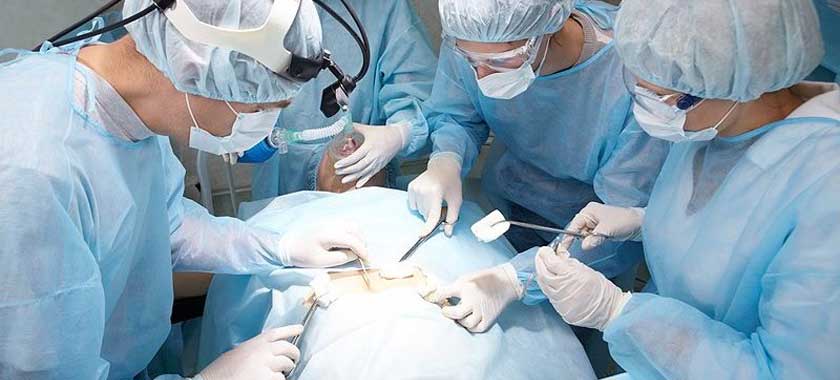Oncology is a branch of medicine which involves diagnosis and treatment of various kind of tumor of our body including the brain, head, Neck lungs liver pancreas, gallbladder, intestine, kidney, ovarian uterus, breast, prostate, lungs, colon and rectum etc.
The department of Oncology at Vedanta Super Specialty Hospital offers comprehensive cancer care to patients including cancer screening, early detection of cancers, providing multi-disciplinary treatment up to the rehabilitation care. It is an excellent department equipped with cutting edge technology and has a dedicated team of highly qualified expert Specialist Physician & Surgeon trained hospital staff providing round the clock services for the treatment of cancers of various regions.
At the Department of Oncology, we provide medical as surgical treatment for a wide range of both benign and malignant tumors. The department focuses on providing full-spectrum evidence-based oncology therapeutics to its patients.
We strive to create the best in class infrastructure, comprehensive facilities and render care and support by handholding every cancer patient in their journey. The management plan for each cancer is chalked out once the cancer is identified and staged. Treatment plan may include surgery, radiation and/or cancer medicine therapy. The team of Oncology Comprises of expert Medical Oncologists, Surgeons and Radiation Oncologists.
Introduction:
Blame it on the sedentary lifestyle or erratic biological cycle, there has been a considerable rise in cancer cases in India, especially among people in late 40s. According to doctors, unhealthy diet coupled with health problems, including diabetes and obesity has increased its risk in both men and women.
In a survey conducted by preventive health check-up organization Indus Health Plus, on patients undergoing cancer diagnosis, it was found that 9.23% women are at higher risk of breast cancer, which is followed by cervical cancer. Maximum numbers of cases were seen in people aged 35- 45years. Late marriage, delayed child-bearing and breast feeding has increased breast cancer risk. Also, 9.28 % men are at higher risk of prostate cancer, followed by head, neck cancer and lung cancer.
A total of 20,130 people, including 11,917 men and 8,213 women underwent various diagnoses in 2013, a report of which was compiled in January 2014. The report states that 37% of young professionals are under the risk of cancer.
Cancer is now a major health concern in India. As per WHO statistics, approximately 70% cancer deaths occur in developing countries and low and middle-income countries. At least 30% cancer could be prevented in case of early detection
This is the second most common disease after cardiovascular disorders for maximum Deaths in the world. In Our country 8 lacs new cases are diagnosed every year and at a time 25 lacs cases are there. Incidence of cancer has been increasing gradually. Increase in number of cancer cases is due to new diagnostic tools and unhealthy food habits and life style. In males lung cancer is most common and in females cancer cervix and breast cancer is common. In metro cities breast cancer is most common in females.
Today in India, 1 in 22 women in cites and 1 in 60 women in rural areas suffer from breast cancer that accounts for about 25% to 33% of all women cancer cases.” Only 5 to 10% of breast cancer cases are hereditary.
Early detection of cancer can greatly improve the odds of successful treatment and survival. Physicians use information from symptoms and several other procedures to diagnose cancer. Imaging techniques such as X-rays, CT scans, MRI scans, PET scans, and ultrasound scans are used regularly in order to detect where a tumor is located and what organs may be affected by it. Doctors may also conduct an endoscopy, which is a procedure that uses a thin tube with a camera and light at one end, to look for abnormalities inside the body. Doctors say 70-80% of cancer patients are diagnosed at terminal stage, when treatment becomes extensive and prognosis poor. Symptoms and treatment depend on the cancer type and how advanced it is. Most treatment plans may include surgery, radiation and/or chemotherapy. Some may involve hormone therapy, biologic therapy, or stem cell transplantation.



